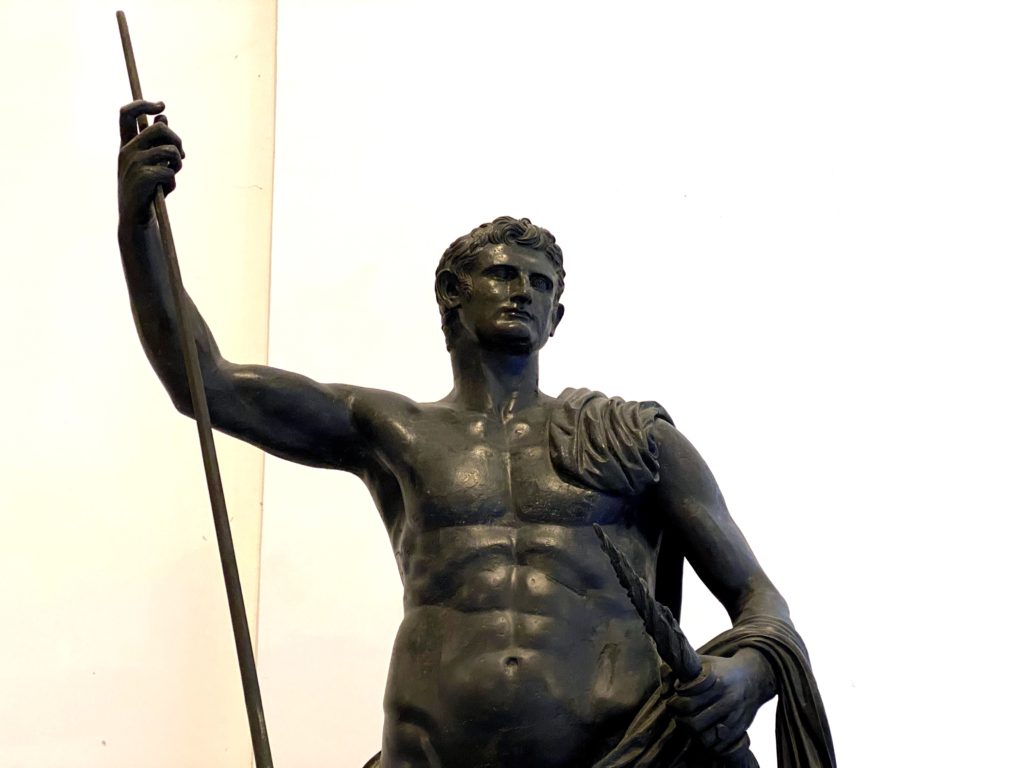Augustus / Divine power of the emperor / Naples National Archaeological Museum

This bronze statue of Augustus was unearthed in Herculaneum. It shows Augustus as Jupiter (Zeus) holding a lightning bolt in his left hand.

Worship of the Roman Emperor as a god:
During his lifetime Julius Caesar allowed a statue of himself to be erected with the inscription Deo Invicto (to the unconquered god) and declared himself dictator for life.
The impulse that led to the deification of the Roman emperors’ came from the East:
The Pharaohs and the Ptolemies, Lycurgus and Lysander of Sparta, and Alexander the Great were worshiped as divinities both while living and when dead. When Rome conquered the East, the same divine honors were transferred to the Roman proconsuls. Naturally, when a single ruler of the empire appeared, he was acclaimed as a god in the eastern provinces. Meanwhile the way had been prepared for the imperial worship in the minds of the Romans themselves. The heroes of Roman legend, as Aeneas, Latinus, Romulus, whom the Romans accepted as historical personages and as the founders of the nation, were believed to be of divine descent and were themselves honored as deities.

Therefore, it was natural that the founder of the empire, a new and greater Rome, should likewise be regarded as a god and be accorded the same homage. Another precursor of the imperial cult was the worship of the Dea Roma. This divinity, the personification of the growing power of Rome in the East, was a Greek invention.
Temples were first erected to her in the second century B.C. in Asia Minor, her cult became associated with that of the emperor both in the East and in the West during the reign of Augustus, Caesar’s nephew and adopted son.

He constructed a temple in Rome which he dedicated to Divus Julius (the divine Julius) and titled himself Divi filius (son of a god).
Augustus allowed temples in Pergamon, Nicomedia then Ancyra. (all in Asia Minor, today’s Turkey) His succesor Tiberius did the same thing in Smyrna. Following emperors gradually increased the influence of the Imperial Cult so that, after Hadrian, their power had become so absolute and so consolidated that the cult was effectively a civil religion and a test of loyalty. It was abolished by Constantine I (4th century).

